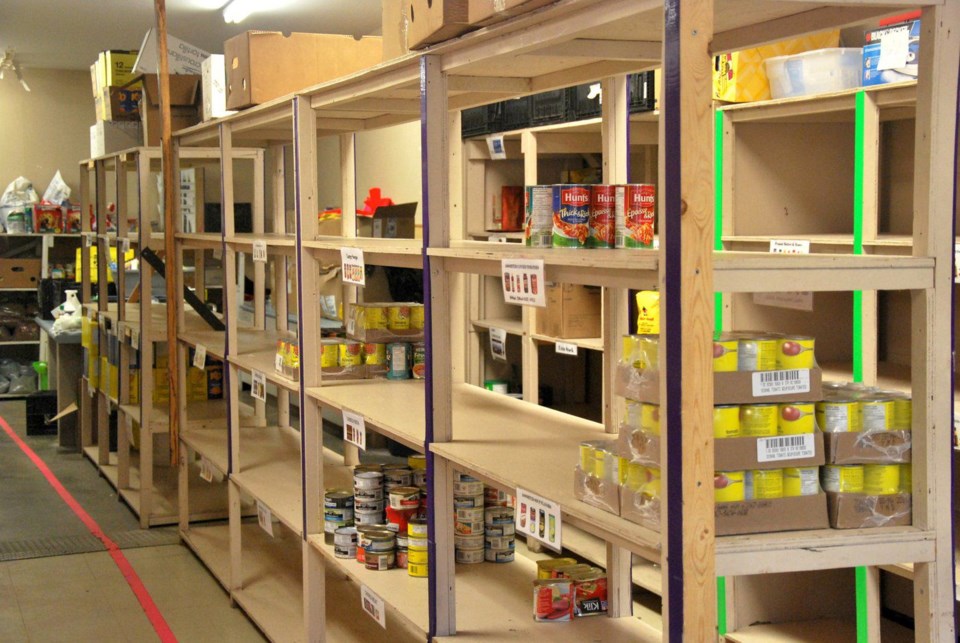PRINCE ALBERT - A University of Saskatchewan poll found that food bank use in the Prairies is the highest in the nation as grocery prices continue to skyrocket across the country.
The finding is among several from a national comprehensive survey on food security conducted from Sept. 6 to Oct. 17 by the University of Saskatchewan’s (USask) Canadian Hub for Applied and Social Research (CHASR).
“The Prairies were quite a lot higher, at 10.3 per cent, versus the next lowest, British Columbia, at five per cent,” said Dr. Jessica McCutcheon (PhD), survey research manager at CHASR.
Faced with soaring grocery bills that have grown at their fastest rate since August of 1981, more Prairie residents are turning to food banks and community fridges to feed themselves than citizens of any other region in Canada.
“I looked into what might be causing this, and there wasn’t a clear answer. What was clear is that it’s not just a finding in this survey but it’s also in other surveys pretty consistently, that Alberta and Saskatchewan have among the highest food bank use rates,” McCutcheon said.
Prairie residents (27.8 per cent) are also more likely than Ontarians (17.5 per cent) or Quebecers (15.7) to say they have reduced meal sizes or skipped meals entirely to save money. And Prairie residents (52.2 per cent) are more apt to have grown or hunted their own food than Quebecers (37.1 per cent) and Ontarians (41.1 per cent), something McCutcheon said could be attributed to the relatively larger rural component of the Prairie population.
Low income is the driving cause for food insecurity, said McCutcheon, and these numbers likely far underestimate the true extent of the problem because low-income persons are the most difficult to get to complete surveys.
Locally, Executive Director for the Prince Albert Food Bank, Kim Scruby, said they have seen an increase of around 15 per cent in recent months compared to pre-COVID. That works out to be around 1,100 hampers per month for approximately 3,000 people, with half of those being children.
“The first spike occurred in June or July when gas prices started to go up a lot,” said Scruby. “Food inflation has been the other major contributor.”
The Prince Albert Food Bank is always taking donations for non-perishable goods, food donations can be dropped off at 64 11th Street East to help individuals in need.
CHASR’s Taking the Pulse of Canada survey had 1,001 respondents across Canada who were contacted via landlines and cellphones. Nearly 78 per cent of respondents said they had used coupons or bought food items on sale, 58.6 per cent said they had decreased household food waste, and 54.5 per cent said they had planned meals to ensure they had enough money and food. As well, 30.7 per cent said they had eaten less healthy food because it’s cheaper.
Notably, nearly five per cent of respondents nationally said they had stolen food out of necessity, while seven per cent of Prairie residents said they had done so.
“Again, that’s probably an underestimate because we are talking about a social desirability bias in the response,” said McCutcheon. “Some people might not admit it, but people having to go to such extremes paints a stark picture.”
As for strategies to help Canadians cope with food insecurity and raise funds to offset costs, 90 per cent support increasing funding to publicly accessible community gardens, 88.5 per cent support increasing funding to food banks, 88 per cent support implementing a universal healthy school food program, and 87 per cent providing grocery subsidies to low-income households.
While nationally 56.6 per cent support implementing a tax on sugar and artificially sweetened beverages, the strongest support for the measures is in Quebec with 77 per cent and lowest in the Prairies, where opinion is evenly split. Similarly, when it comes to penalizing carbon emissions, 73.5 per cent of Quebecers are in support while the support drops to just 30.6 per cent on the Prairies and 39 per cent in British Columbia.




